American Theatre Eleventh Air Force: Photo missions to Paramushiru, Matsuwa, Onnekotan and Shasukotan Islands turn back due to weather.
American Theatre
Eleventh Air Force: Photo missions to Paramushiru, Matsuwa, Onnekotan and Shasukotan Islands turn back due to weather.
China Burma India Theatre
Tenth Air Force: In Burma, 20+ P-47s hit targets of opportunity in the Mawhun and Manyut areas, knock out a bridge at Seywa, and bomb railroad tracks in N Burma; 5 B-25s damage a bridge and score hits on the other bridge approaches at Namhkai and knock out 2 bridges at Wuntho and Kawlin. In India, HQ 443d Troop Carrier Group moves from Dinjan to Ledo.
Fourteenth Air Force: 12 P-40s and P-51s hit locomotives, trucks, and river traffic at Yuncheng and NE of Pengtse.
European Theatre - Western Front
Ninth Air Force: A revision and elaboration (from 28 Sep-8 Oct) of the Ninth AF interdiction program against railroads connected with the Rhine River results in the issuance of a new interdiction program; it includes rail lines further to the E and requires attacks by all 4 Tactical Air Commands of the Ninth AF, plus aid from the British Second Tactical AF. 300+ B-26s and A-20s, with fighter escort, hit strongpoints and bridges over wide areas of E France and W Germany; fighters support ground forces of the US VII, XV, XIX, and XX Corps in E France and W Germany, and attack airfields, railroads, and numerous military targets in forward areas.
Crucifix Hill: Captain Bobbie E. Brown - Medal of Honor - He commanded Company C, 18th Infantry Regiment, on 8 October 1944, when it, with the Ranger Platoon of the 1st Battalion, attacked Crucifix Hill, a key point in the enemy's defense of Aachen, Germany. As the leading rifle platoon assaulted the first of many pillboxes studding the rising ground, heavy fire from a flanking emplacement raked it. An intense artillery barrage fell on the American troops which had been pinned down in an exposed position. Seeing that the pillboxes must be neutralized to prevent the slaughter of his men, Capt. Brown obtained a pole charge and started forward alone toward the first pillbox, about 100 yards away. Hugging the ground while enemy bullets whipped around him, he crawled and then ran toward the aperture of the fortification, rammed his explosive inside and jumped back as the pillbox and its occupants were blown up. He rejoined the assault platoon, secured another pole charge, and led the way toward the next pillbox under continuous artillery mortar, automatic, and small-arms fire. He again ran forward and placed his charge in the enemy fortification, knocking it out. He then found that fire from a third pillbox was pinning down his company; so he returned to his men, secured another charge, and began to creep and crawl toward the hostile emplacement. With heroic bravery he disregarded opposing fire and worked ahead in the face of bullets streaming from the pillbox. Finally reaching his objective, he stood up and inserted his explosive, silencing the enemy. He was wounded by a mortar shell but refused medical attention and, despite heavy hostile fire, moved swiftly among his troops exhorting and instructing them in subduing powerful opposition. Later, realizing the need for information of enemy activity beyond the hill, Capt. Brown went out alone to reconnoiter. He observed possible routes of enemy approach and several times deliberately drew enemy fire to locate gun emplacements. Twice more, on this self-imposed mission, he was wounded; but he succeeded in securing information which led to the destruction of several enemy guns and enabled his company to throw back 2 powerful counterattacks with heavy losses. Only when Company C's position was completely secure did he permit treatment of his 3 wounds. By his indomitable courage, fearless leadership, and outstanding skill as a soldier, Capt. Brown contributed in great measure to the taking of Crucifix Hill, a vital link in the American line encircling Aachen.
European Theatre - Eastern Front
Tehumardi: The Battle of Tehumardi was fought at night on the Estonian island of Saaremaa between retreating German troops and a Soviet Estonian rifle division. Both sides fought blindly, firing into the darkness or feeling for the enemy by touch.
Mediterranean Theatre
Fifteenth Air Force: Bad weather limits operations to reconnaissance and sea-search missions.
Twelfth Air Force: In Italy, bad weather forces medium bombers to cancel missions; XII Fighter Command fighters are airborne to support ground forces over the battle area and abort all missions.
Trieste: Nicolò Cortese, 37, Italian priest, killed in Trieste by the Gestapo’s torturers for his help to Jews and partisans; called “the Italian Father Kolbe”.
Pacific Theatre
Seventh Air Force: 3 Saipan Island-based B-24s hit Pagan and Marcus Islands. 24 P-47s hit buildings, beach defenses, and gun positions on Pagan Island. During the day and night of 8/9 Oct B-24s from the Marshall Islands bomb Wake Island.
Southwest Pacific Theatre
Far East Air Force (FEAF): On Ceram Island, P-47s bomb Amahai and Boela. In the Moluccas Islands, P-38s hit Dodinga Bay barge hideouts, supplies and targets of opportunity along Wasile and Kaoe Bays on Halmahera Island. In New Guinea, B-25s, A-20s, and fighter-bombers hit Sorong, Doom Island, runways and targets of opportunity at Efman and Samate, and gun positions, bivouacs, and supplies at Simora Point.













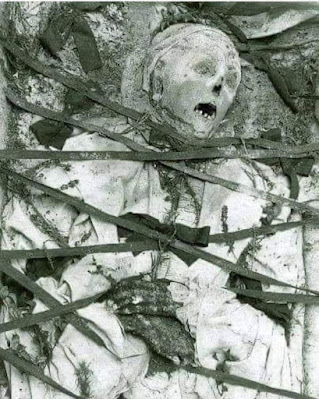
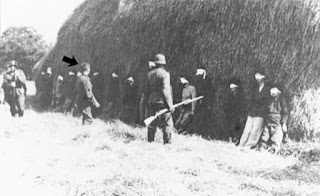


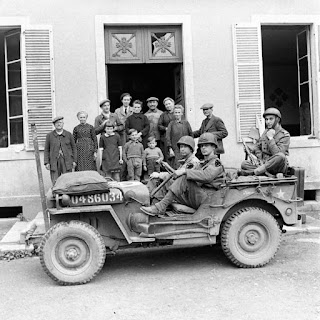



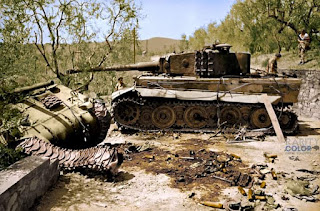
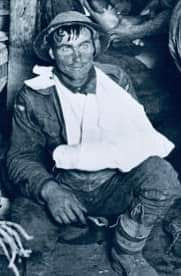
Comments
Post a Comment